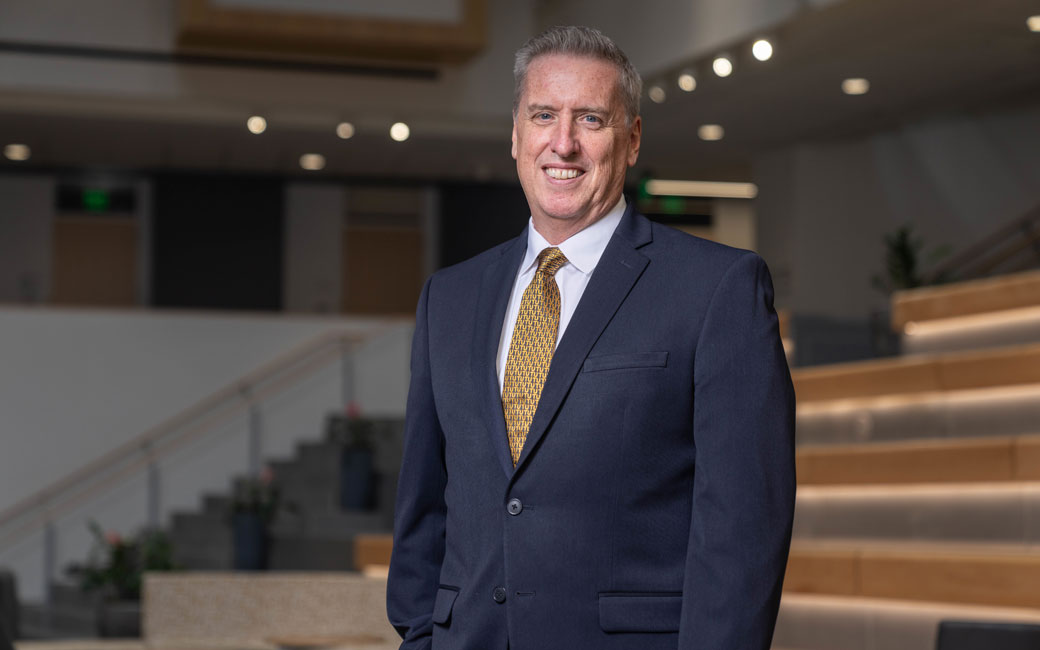Q&A with new FCSM Dean Matthew Nugent
One of our newest Tigers shares his enthusiasm for research, love of nature
By Megan Bradshaw on August 8, 2023

Matthew Nugent began his tenure as dean of the Fisher College of Science and Mathematics in July. We spoke with him about the thrill of scientific discovery, the importance of undergraduate research and the inspiration for his series of children’s books.
Where are you from?
I was born and grew up in the greater Boston area, in a suburb called Watertown. I went to Watertown Public Schools through high school, where I fell in love with science. In 10th grade, I had a biology teacher named George Buckley. He showed me how science is still alive and active. He would talk about professor X and professor Y at a conference having a big debate about something. That was new to me, this idea that we don't just know this stuff, we're trying to learn it. I didn't really understand until then how powerful the process of discovery is—learning something that through the eons no one has known yet.
What piece of advice have you offered students?
If you can learn how to say please and thank you and mean it, you'll go far in life. When people help you, make sure you let them know they helped you. And when you need something, ask politely and mean it. If you learn nothing else, those will help you move forward.
How do you feel you can contribute to TU’s push for R2 Carnegie classification?
Having more research opportunities for students is an amazing chance for them to see how science works. And how can we do that? One way is to work on creating an environment that makes it clear to faculty that we want to support them in doing research. Another is creating a spirit of discovery in promoting and recognizing the value of research. I want to make sure we celebrate that and start to make it part of the DNA of the college. This is what we're about—pushing the envelope, making new discoveries and giving students the opportunity to be involved in that.
Why do you think doing research is so vital to a student's college experience?
Getting engaged in research helps a student become a better learner because they then understand why they’re
learning what they’re learning. You start to see how it’s applied, and you'll make
mistakes. That's really effective for a student. They realize, in the real world,
the details do matter.
Also, the excitement you get when you may have discovered something, even if it's
a very little nugget of information that very few people understand, really changes
the way you look at learning because you're seeing you can make an impact. It gives
students the ability to see how science is alive, how intellectual pursuits are alive
and that we're trying to help them learn how to think.
How do you spend your time outside of academia?
My family is important to me. My wife Nancy and I have two children, Brian and Colleen,
but I'm one of six, my mother was one of six, and my father was one of eight. We get
together, and it's a very grounding experience. When we're together, they teach me,
and I teach them.
I used to play a lot of sports. My knees don't really let me do that anymore, but
I still do a lot of hiking. In New Hampshire, there are the White Mountains and there
are 48 that are either 4,000 feet or higher. I have hiked 41 of them, and I want to
get the other seven.
I read a lot. I've written a number of children's books for fun. They're set in a beach that my whole family and I go to every year up in
Kennebunkport. We sell them in little shops up there, and they were illustrated by
my mother who was an artist. There was a tradition where each year I'd write a story
and then I'd read it to the whole gang.